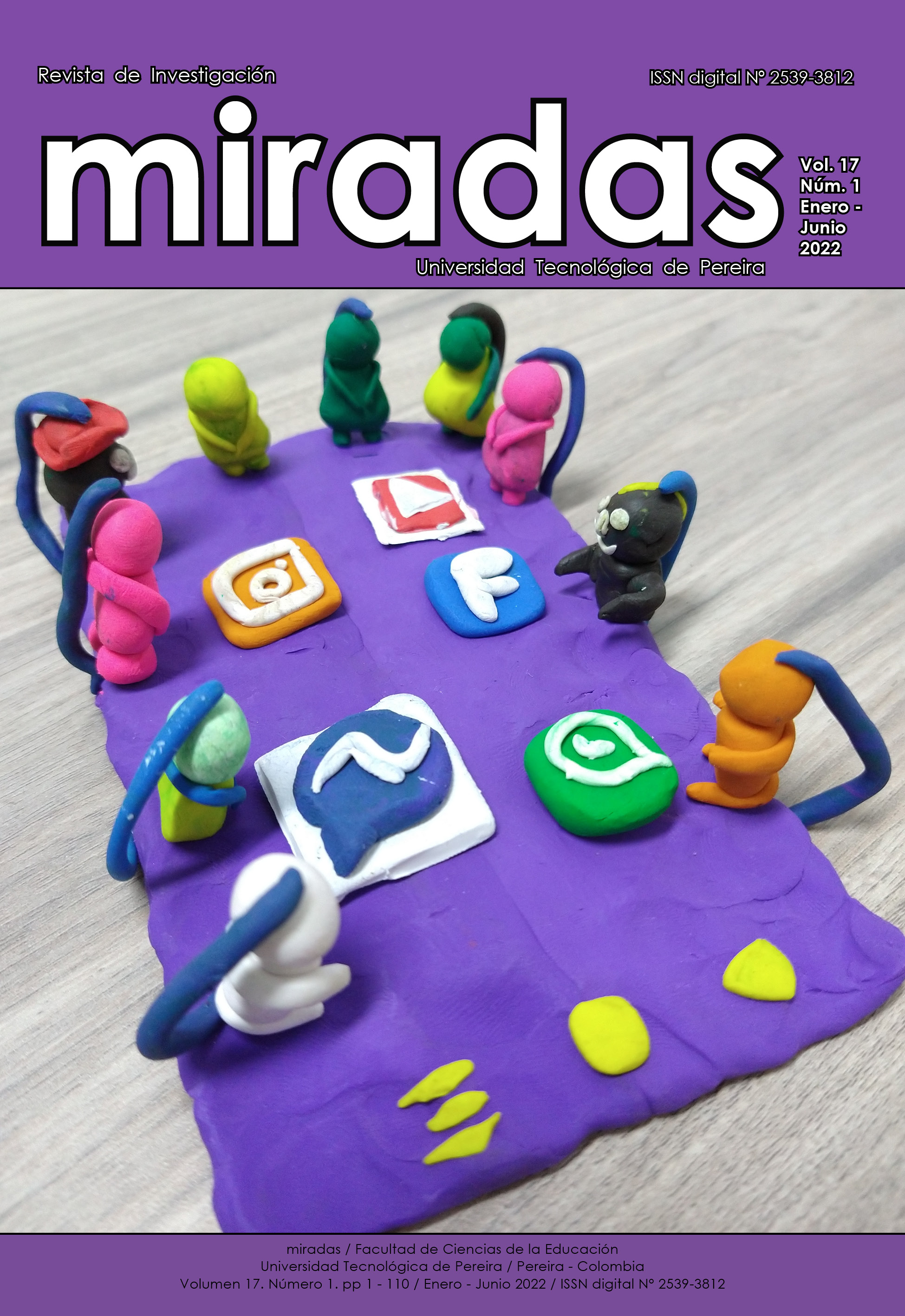"To let learn". Between philosohy and didactics of philosophy in high school
DOI:
https://doi.org/10.22517/25393812.24952Abstract
I develop here a hermeneutical reflection on some issues around the teaching of philosophy in high school in Colombia. Following the Hermeneutics school in Alberta, Canada, I develop interpretation based on real experiences, etymologies, metaphors and frequent connections with personal life in order to deepen the phenomenon addressed (not to find or reveal its truth). In this way, I opt for a less scientific and formal language that aims to propose proven and definitive knowledge. I thus highlight the reflective side of the document. Regarding the theme or phenomenon, this text focuses on a prejudice that probably persists strongly among philosophy teachers in Colombia and that allows us to understand why it is and has been so difficult to change the ways of teaching philosophy: the teacher He is the one who must teach and the student learn. I offer here my interpretation.
Downloads
References
Biesta, G. (2012). Giving teaching back to education: Responding to the disappearance of the teacher. Phenomenology & Practice, 6(2), 35–49.
Biesta, G. (2017). Rediscovery of teaching. Routledge.
Eppert, C. (2011). Empty chair, empty boat. Philosophy of Education, 37–39.
Fidyk, A. (2013). Conducting research in an animated world: A case for suffering. International Journal of Multiple Research Approaches, 7(3), 384–400.
Gadamer, H.-G. (2011). Educar es educarse. Revista de Santander, 6, 90–108.
Gadamer, H.-G. (2012). Verdad y Método. Sígueme.
Gómez Mendoza, M. Á. (2003). Introducción a la didáctica de la filosofía. Papiro.
Gómez Pardo, R. (2007). La Enseñanza de la Filosofía. Universidad de San Buenaventura.
Heidegger, M. (1954). Was heisst denken? Vittorio Klostermann GmbH.
Heidegger, M. (2005). ¿Qué significa pensar? Trotta.
Herrera, D. (2009). Por los senderos del filosofar. Editorial Bonaventuriana. “Dejar aprender”: entre filosofía y didáctica de la filosofía en bachillerato
Hoyos,G.(2009).Educaciónparaun Ranciere, J. (2002). El maestro nuevo humanismo. Magis. Revista Internacional de Investigación En Educación, 2, 425–433.
ignorante. Cinco lecciones sobre la emancipación intelectual. Laertes.
Hoyos, G. (2012). Ensayos para una Ricoeur, P. (1991a). From text to teoría discursiva de la educación. Magisterio.
Jardine, D. W. (1992). Speaking with a boneless tongue. Makyo Press. Jardine, D. W. (2003). The profession needs new blood. In Back to the basics of teaching and learning. Thinking the world together (pp. 55–70). Lawrence Erlbaum Associates, Publishers.
Kant, I. (2010). ¿Qué es la ilustración? In Filosofía de la historia (pp. 25–38). Fondo de Cultura Económica. Kierkegaard, S. (2007). Johannes Climacus o el dudar de todas las cosas. Gorla.
MacLure, M. (2015). The “New Materialisms”. A thorn in the flesh of critical qualitative inquiry? In G.
Cannella, M. S. Perez, & P. Pasque (Eds.), Critical Qualitative Inquiry: Foundations and Futures (pp. 93–112). Left Coast Press.
Ministerio de Educación Nacional (MEN). (2010). Orientaciones Pedagógicas para la Filosofía en la Educación Media.
Moules, N., McCaffrey, G., Field, J., & Laing, C. (2015). Conducting Hermeneutic Research: From philosophy to practice. Peter Lang.
Park, P. (2013). Africa, Asia, and the history of philosophy. Racism in the formation of the philosophical canon 1780-1830. Suny Press. action. Essays in hermeneutics, II.
Northwestern University Press. Ricoeur, P. (1991b). Hermeneutics and the critique of ideology. In From text to action. Essays in hermeneutics, II. (pp. 270–307).
Northwestern University Press. Smith, D. G. (1999). Pedagon. Interdisciplinary essays in the human sciences, pedagogy and culture. Peter Lang.
Downloads
-
Vistas(Views): 463
- PDF (Español (España)) Descargas(Downloads): 363



